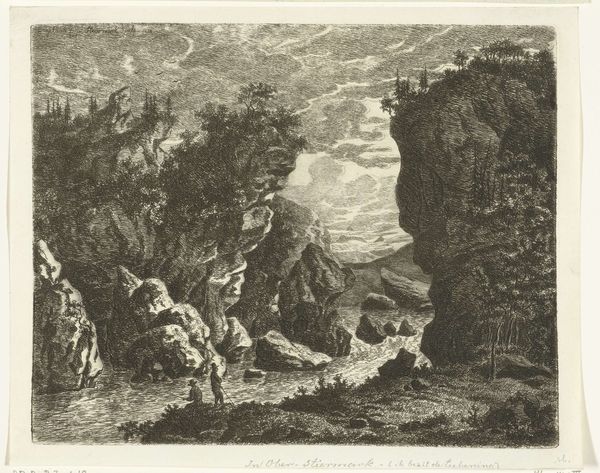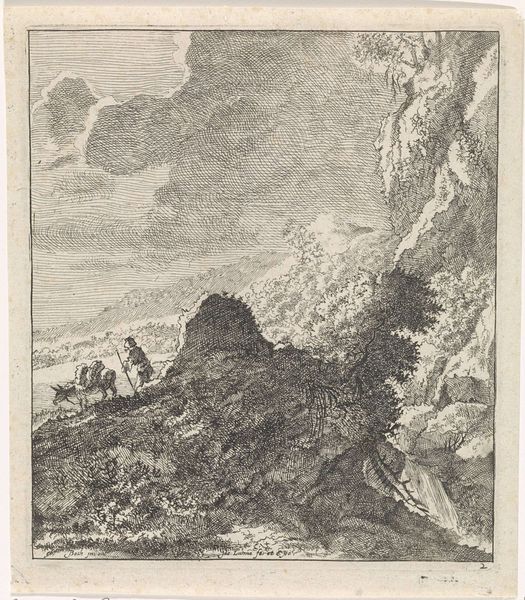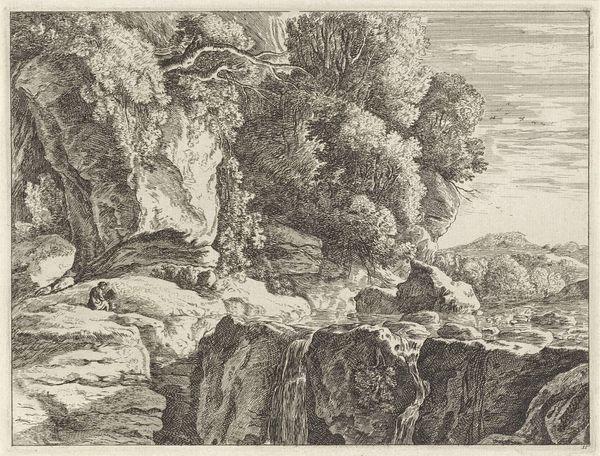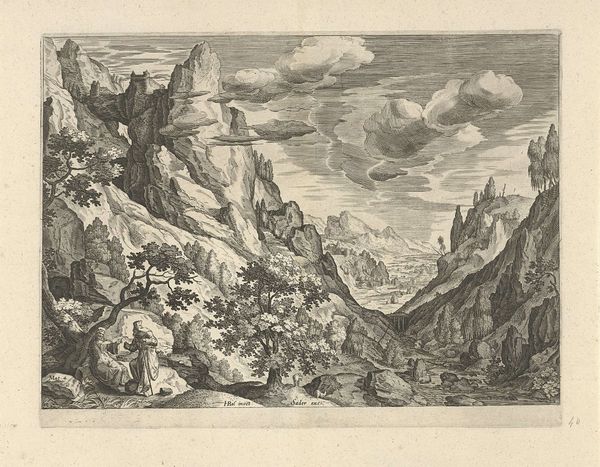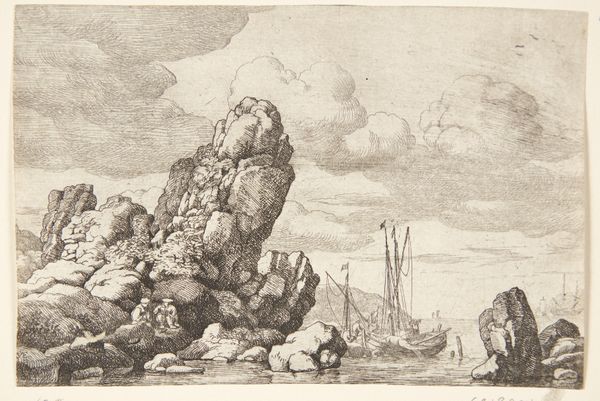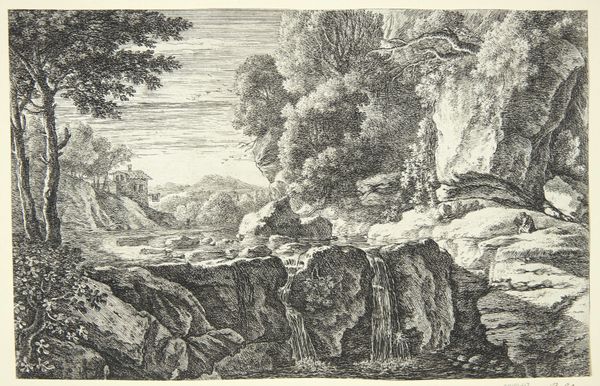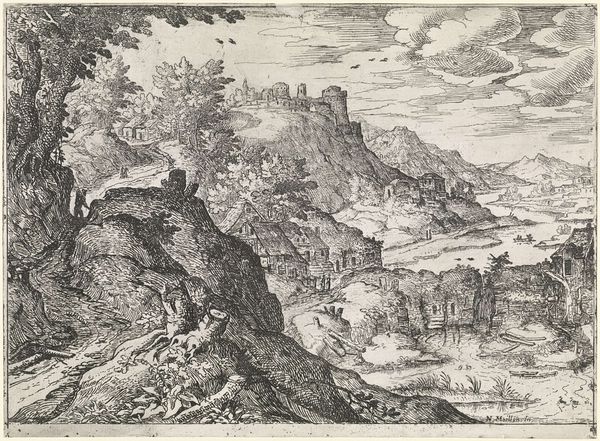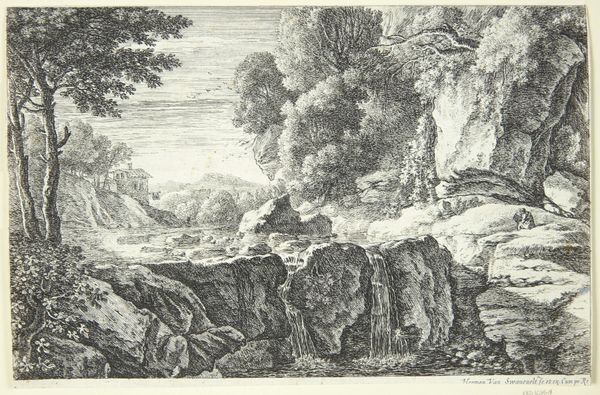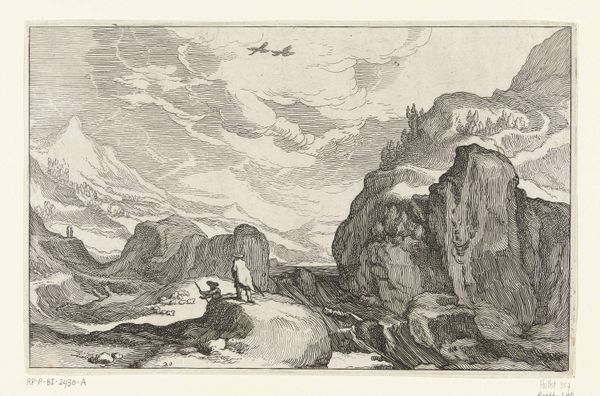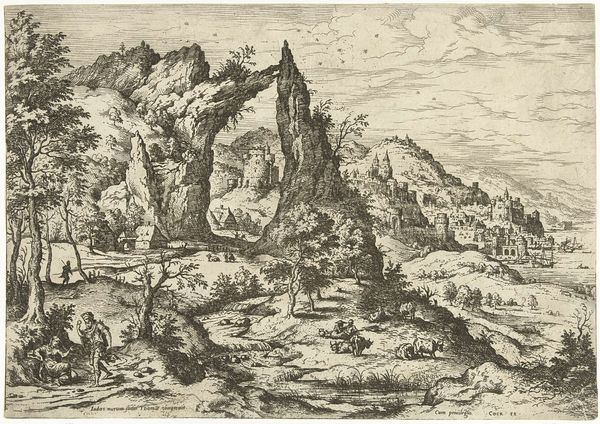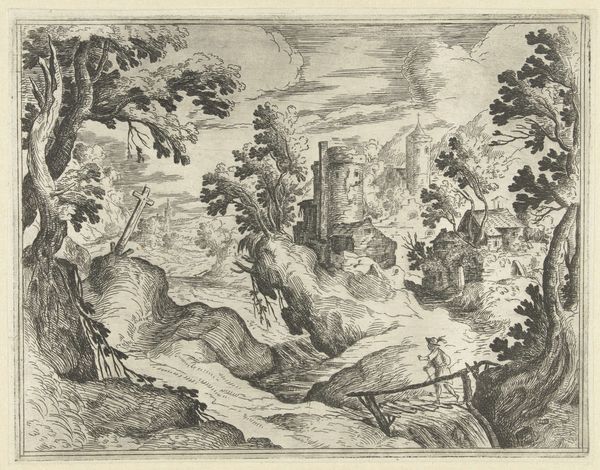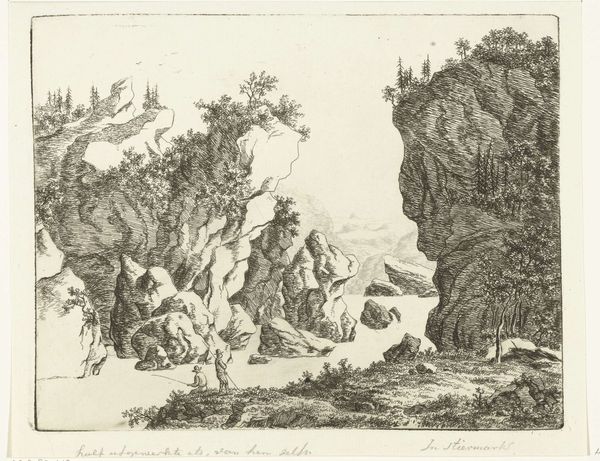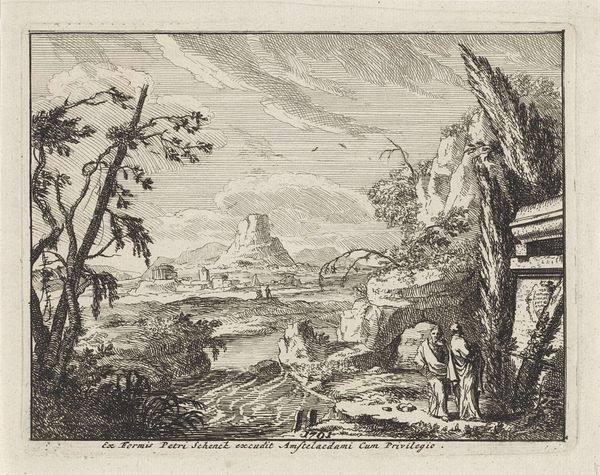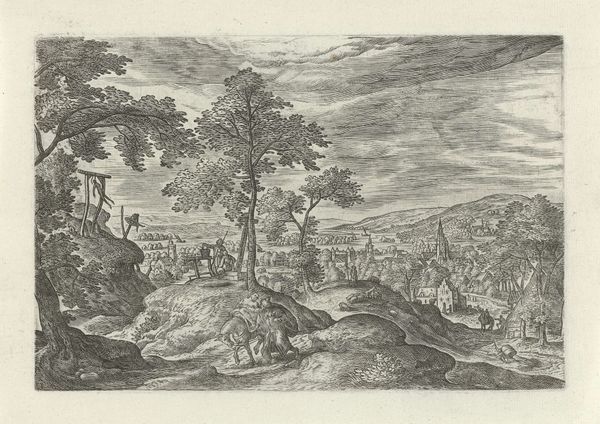
#
pencil drawn
#
natural shape and form
#
light pencil work
#
pen sketch
#
pencil sketch
#
old engraving style
#
pencil drawing
#
pen-ink sketch
#
pencil work
#
pencil art
Dimensions: height 170 mm, width 213 mm
Copyright: Rijks Museum: Open Domain
Ernst Willem Jan Bagelaar created this print, ‘View of a ravine in Styria with two fishermen’, using etching—a method of printmaking that relies on the corrosive properties of acid. The process begins with a metal plate, coated with a waxy, acid-resistant substance. The artist scratches through this ground, exposing the metal beneath. When immersed in acid, the exposed lines are eaten away, creating grooves. These are then inked, and the image transferred to paper under pressure. Look closely, and you can discern the character of the etched line—thin, precise, and capable of capturing fine detail. Bagelaar uses this to great effect, rendering the rugged texture of the rocks and foliage. The print medium, with its capacity for reproducibility, democratizes the experience of viewing this dramatic landscape. While a painted landscape might remain in a private collection, prints like this brought such scenes into the homes of a wider audience, shaping perceptions of nature. So, considering the material processes at work here gives us insight into the democratization of art and culture in Bagelaar's time.
Comments
No comments
Be the first to comment and join the conversation on the ultimate creative platform.
